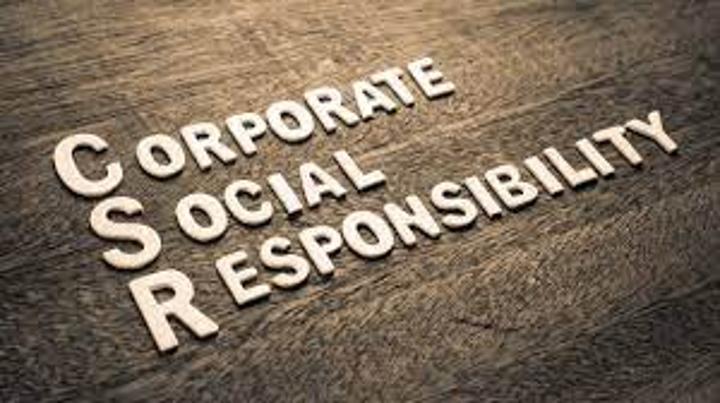Africa-Press – Namibia. CORPORATE SOCIAL RESPONSIBILITY (CSR) is a broad term, but in essence it is the ownership a company takes of its role in society, how it conducts its business, and its impact on the environment.
The concept of CSR implies a company must generate economic value (profit) responsibly, enabling the company to create sustainable opportunities for advancing and improving the social and economic conditions in its surrounding communities.
The benefits of CSR far exceed the ‘feel-good’ state of a company when positioned as a responsible and caring organisation. If done for the right reasons and in the right way, it would contribute to loyalty and goodwill from stakeholders, customers, and employees.
Most employees would like to work for an employer that embraces its corporate social responsibility and positively impacts society. That is why CSR has evolved over the years from a public-relations tool and a nice to have to become a strategic imperative for the company’s future growth and sustainability.
But how do companies go about being more strategic and less tactical in their approach to CSR? LONG-TERM AND SYSTEMIC ISSUES CSR is multidimensional and not only about philanthropy.
It extends to how the company conducts itself and the value it creates through doing business ethically and responsibly. To make a meaningful impact on society, companies should identify sustainable solutions to address systemic problems and their root causes.
For instance, in Namibia, more than 20% of Namibians are food insecure. Many companies and welfare organisations are committed to providing relief to these impoverished Namibians by handing out food donations and supporting soup kitchens.
During the Covid-19 pandemic, this need became even bigger, and most companies redirected their social programmes to fight poverty and hunger. Is there, however, a more sustainable solution other than handing out food parcels?
Should we not invest more of our resources into empowering communities to establish and maintain their own vegetable gardens to provide a constant food source?
Is there a solution to the tonnes of food wasted every month in the hospitality and retail industry? Capricorn Group’s flagship brand, Bank Windhoek, has a long track record of making a meaningful impact on society.
One example of a long-term project that addressed a system issue was when the bank signed a cooperation agreement in 2004 with the then Ministry of Basic Education, Sport, and Culture.
A need was identified to strengthen entrepreneurial skills development and training in the national education curriculum to train future entrepreneurs for Namibia.
This has led to the introduction of entrepreneurship as a subject in Namibian secondary schools that equips pupils with the skills and knowledge to start their own businesses. This contributes to job creation and alleviates unemployment.
These sustainable approaches deal with systemic projects in our communities and align the company’s objectives to that of the country’s national development plans and the United Nation’s Sustainable Development Goals.
That way your company is guaranteed to direct its efforts and resources towards the biggest positive impact. SHORT TERM It is important to note that although a more strategic and long-term approach is more sustainable, the immediate needs in our communities cannot be ignored.
The ideal is to have a balanced approach between addressing long-term systemic issues and supporting short-term social needs. The pandemic has taught us one thing about social investment – plans can change.
For example, the national emergency regarding the shortage of medical oxygen in June 2021 in Namibia required the swift relevant response of the private sector to support the government and to divert funds to this initiative.
Therefore, it is important to reflect on what needs to be done over the long term to prevent a similar emergency situation. COLLABORATION Renowned poet Helen Keller said: “Alone we can do so little; together we can do so much.”
This has merit as our communities are intertwined, and there are most probably others in the business community focusing on the exact same social problems.
Therefore, always consider the initiatives you are supporting or wish to support and how you can collaborate with like-minded institutions, where possible, to address community-wide needs. The logic behind collaboration is that combined resources create the prospect of helping more people. VOLUNTEERING Finally, involve your employees.
The aspect of employee volunteerism adds great value to corporate social investment initiatives. When a company is willing to allow its employees to volunteer their productive time to support communities, it shows its heart.
Not only does it build brand pride and enhance engagement among employees, resulting in more productivity, but it also allows employees to become part of a purpose, and it proves your commitment to making a difference to your stakeholders.
There is still much that can be done to address the needs in society, but with every action taken, we are one step closer to creating a better tomorrow for everyone.
* Marlize Horn is Capricorn Group Limited’s executive: brand and corporate affairs.
For More News And Analysis About Namibia Follow Africa-Press






